Contributing $ 6
Altruistic Contribution
We’ll thank you for life.
Important: Your contribution is tax-deductible by up to 80%! (Your actual cost will be €1). Find out more HERE.
> 00 Co-financiers
Goteo ha construido una historia única en el mundo del micromecenazgo. ¿Quieres seguir formando parte de ella?
Documentary and Two Books: *“Traditional” Wrestling in the Iberian Peninsula
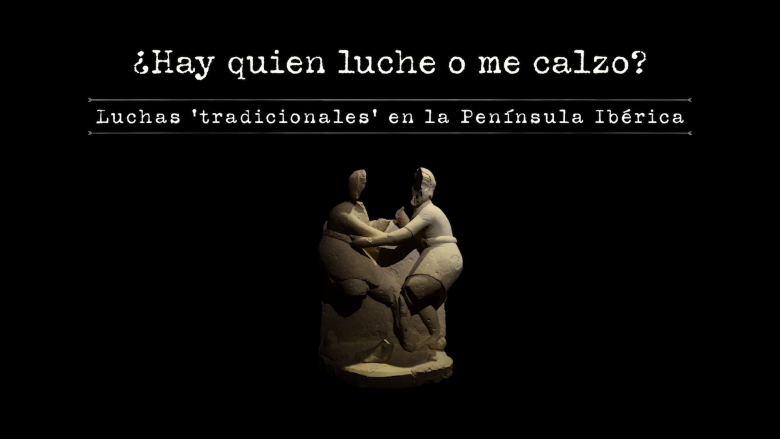

 Min.
Min.
 Opt.
Opt.
 Chaves, Portugal
Chaves, Portugal
We’ll thank you for life.
Important: Your contribution is tax-deductible by up to 80%! (Your actual cost will be €1). Find out more HERE.
Your collaboration will be publicly acknowledged on social media (if desired).
Important: Your contribution is tax-deductible by up to 80%! Find out more HERE.
This contribution grants you access to the premiere screenings of the documentary in select cities (TBD).
You can claim your ticket at one of the organized events by presenting the email confirmation.
(+ Public Thanks)
Important: Your contribution is tax-deductible by up to 80%! Find out more HERE.

An A4 landscape calendar featuring photos from our fieldwork.
(+ Public Thanks)
Important: Your contribution is tax-deductible by up to 80%! Find out more HERE.

Receive a fantastic T-shirt inspired by traditional wrestling. Designed by Italian artist Elena Zeziola. Choose your preferred model and collect it at one of our events, or we’ll ship it to you (shipping within mainland Spain, Canary Islands, and Balearic Islands included).
(+ Public Thanks)
Important: Your contribution is tax-deductible by up to 80%! Find out more HERE.

A booklet featuring the traditions and history of traditional wrestling.
(+ Public Thanks)
Important: Your contribution is tax-deductible by up to 80%! Find out more HERE.

Get a temporary link to watch the documentary before its official release.
(+ Public Thanks)
(+ A4 Landscape Calendar)
Important: Your contribution is tax-deductible by up to 80%! Find out more HERE.
Participate in a masterclass on traditional wrestling taught by Vitor José Gomes, Martial Arts Master and Luta Galhofa expert. The class will take place at the Associação Portuguesa O Samurai in Chaves, Portugal, during the documentary’s promotional period.
(+ Educational Booklet)
Important: Your contribution is tax-deductible by up to 80%! (Your actual cost will be €20). Find out more HERE.

Choose between a high-quality photo book or the Luta Galhofa book.
(+ Exclusive Viewing Link)
Important: Your contribution is tax-deductible by up to 80%! (Your actual cost will be €30). Find out more HERE.

Feature your brand or establishment in the documentary credits and related publications under the "Supported By" section.
(+ Public Thanks)
Important: Your contribution is tax-deductible by up to 80%! Find out more HERE.
Have your name featured in the credits and on the documentary poster.
(+ A4 Landscape Calendar)
(+ T-Shirt)
(+ Educational Booklet)
(+ Exclusive Viewing Link)
Important: Your contribution is tax-deductible by up to 80%! (Your actual cost will be €127.50). Find out more HERE.
Your establishment or brand will be mentioned in every acceptance speech for awards received. A 30-second promo video for social media will also be created (if relevant).
(+ A4 Landscape Calendar)
(+ T-Shirt)
(+ Educational Booklet)
(+ Exclusive Viewing Link)
Important: Your contribution is tax-deductible by up to 80%! Find out more HERE.
Be officially named as a patron of the documentary.
(+ A4 Landscape Calendar)
(+ T-Shirt)
(+ Educational Booklet)
(+ Exclusive Viewing Link)
(+ Photo Book)
Important: Your contribution is tax-deductible by up to 80%! Find out more HERE.
Be recognized as a premium patron of the documentary or include product placement.
(+ A4 Landscape Calendar)
(+ T-Shirt)
(+ Educational Booklet)
(+ Exclusive Viewing Link)
(+ Photo Book)
(+ Luta Galhofa Book)
Important: Your contribution is tax-deductible by up to 80%! Find out more HERE.
Will you support us?** We are embarking on a journey to trace wrestling traditions that date back, at the very least, to Pre-Roman Hispania.
 Material
Material
|
Minimum | Optimum |
|---|---|---|
|
Recording Equipment
Purchase of basic equipment for professional recording.
|
$ 4,790 | |
|
Gifts for Informants
Small gifts to thank informants for their interviews.
|
$ 239 |
 Task
Task
|
Minimum | Optimum |
|---|---|---|
|
Meals and Recording Expenses
Meals, accommodation, and other recording-related expenses for the filmmaker.
|
$ 1,197 | |
|
Editing a Simple Educational Booklet
A basic educational booklet for institutions, municipalities, etc.
|
$ 48 | |
|
Editing a Photo Book (Basic Edition)
A photo book series with high-quality images of traditional wrestling practices.
|
$ 144 | |
|
Editing the Luta Galhofa Book (Basic Edition)
Editing the book Traditional Portuguese Wrestling (Luta Galhofa): Its History, Testimonies, the Modern Era, and School Teaching. Basic edition.
|
$ 838 | |
|
Fuel and Basic Team Expenses
Fuel, meals, and incidental expenses for the rest of the team.
|
$ 239 | |
|
Reenactment of Traditional Wrestling
Recreating a traditional Luta Galhofa combat, covering scene setup and participants' needs.
|
$ 359 | |
|
Second Recording and Editing Session (March-April)
If optimal funding is achieved, a second recording session will take place in spring to include new interviews and traditions from other regions of Spain and Portugal.
|
$ 3,592 | |
|
Editing a High-Quality Photo Book
A photo book series with premium-quality images of the documented wrestling practices.
|
$ 1,339 | |
|
Editing the Luta Galhofa Book (High-Quality Edition)
High-quality edition of the book Traditional Portuguese Wrestling (Luta Galhofa).
|
$ 599 | |
|
Fuel and Expanded Team Expenses
Covering additional fuel, meals, and expenses for a second recording session.
|
$ 359 |
 Infrastructure
Infrastructure
|
Minimum | Optimum |
|---|---|---|
|
Fuel for Travel
Covering travel across the northwest Iberian Peninsula to record informants.
|
$ 359 | |
|
Crowdfunding Platform Fee
Commission for the crowdfunding platform.
|
$ 862 | |
| Total | $ 9,076 | $ 14,965 |
"Is there anyone who will wrestle, or should I strap on my shoes?"
This is how J.A. Robles Tascón captured the way young men from León—and sometimes not-so-young men—challenged the crowd to engage in a contact sport where the aim was to topple the opponent. The northwestern third of Spain and Portugal has hosted, in its villages, "folk" wrestling traditions that included participants of all social standings, sometimes even women.
The presence of these types of wrestling across Eurasia—from India to Scotland—as well as their attested existence in the Middle Ages and Protohistory of the Iberian Peninsula, highlights Portuguese luta galhofa, Astur-Leonese baltu, Cantabrian aluches, and other forms of wrestling as heirs to wrestling traditions of Indo-European origin.
Thus, the aim is to travel to various locations across the Iberian Peninsula to DOCUMENT and EDIT a documentary and two books featuring some of the last ethnographic testimonies of this practice, while also identifying in these traditions ancient ways of organizing prestige, marking the transition to adulthood, and cyclically renewing the vitality of rural communities. The documentary will be produced by Italian filmmaker Simone Cannova.
DOCUMENT, RESEARCH, and SHARE.
PRIMARY OBJECTIVE
From December 2024 to April 2025, we plan to travel across northern Portugal, Galicia, Asturias, and Castilla y León to interview and film as much information as possible from informants already selected and contacted through our network of Portuguese and Spanish collaborators. The Italian filmmaker Simone Cannova (Produzione Clandestine) will be responsible for the audiovisual component.
DELIVERABLES
Deliverable 1: Gather raw ethnographic interviews as pure ethnographic testimony.
Deliverable 2: Produce a professional, internationally-oriented documentary titled Is There Anyone Who Will Wrestle, or Should I Strap on My Shoes? Traditional Wrestling in the Iberian Peninsula, to be presented at ethnographic exhibitions and documentary competitions.
Deliverable 3: Create a raw photographic ethnographic corpus.
Deliverable 4: Publish the book Traditional Portuguese Wrestling (Luta Galhofa): Its History and Testimonies.
Deliverable 5: Publish a photobook series titled Traditional Wrestling in the Iberian Peninsula.
SECONDARY OBJECTIVES
Raise Awareness: Highlight this phenomenon to ensure that traditional wrestling in Spain and Portugal receives the highest level of intangible heritage protection nationally, as is already the case regionally in Castilla y León, and even internationally (UNESCO).
Encourage Preservation: Promote identity and connection with traditions through the active practice of these native sports from childhood.
Foster Transborder Knowledge: Strengthen cultural ties and brotherhood across the regions where these traditions have historically been practiced.
Expand Research: Lay the groundwork for a similar documentary and research project focusing on European wrestling traditions (gouren, glima, etc.).
Establish Ethnoarchaeological Studies: Develop a strategy for research that values rural testimonies of pre-industrial Europe as an essential source of knowledge about its past, present, and future.
Cultural Integration: Contribute to the development of traditional Iberian wrestling as a vehicle for cultural integration, much like how Canarian wrestling (lucha canaria) serves individuals from diverse backgrounds today.
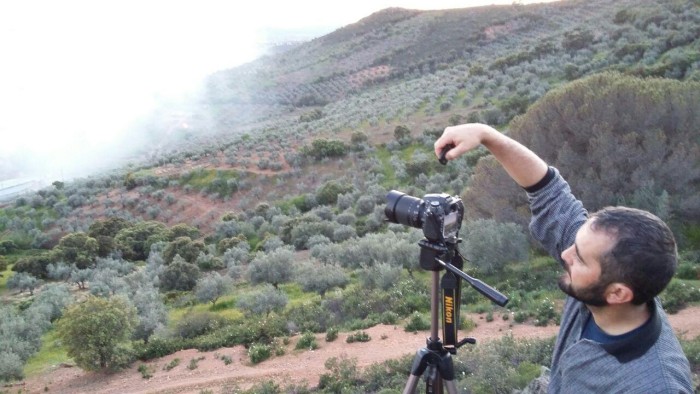
WE ARE LOSING OUR INFORMANTS. I have been pondering this direct approach to "traditional" wrestling since my doctoral thesis (2012), where I realized that such combats, along with other popular practices, were far more than mere entertainment: they were crucial social mechanisms for cyclically renewing pre-industrial rural communities, harmonizing conflicts, and establishing the prestige of individuals, families, and localities.
However, with each passing year, the last individuals who wrestled in their villages, whether with fellow villagers or outsiders, are disappearing. Along with them, we are losing a centuries—perhaps millennia—old way of understanding premodern and ancient societies. Some informants have passed away just as we were preparing to start this project, and many of those we have contacted are in their eighties and nineties, leaving us little time.
For this reason, and because these wrestling traditions remain unknown both inside and outside the regions where they exist or once existed, we are embarking on this project with as much enthusiasm as urgency.
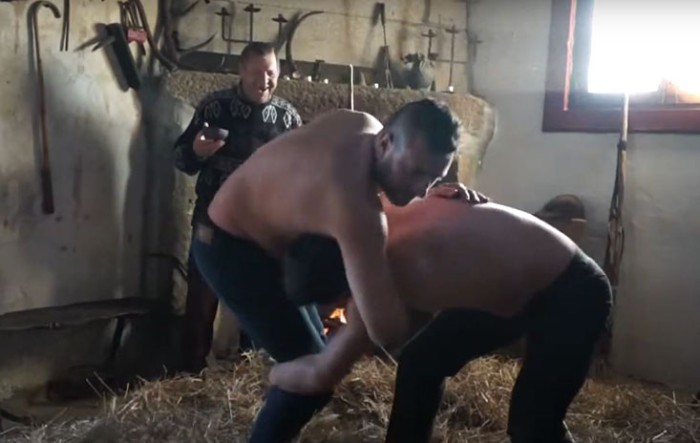
The main objectives of this project will be carried out by an international Portuguese-Spanish-Italian team. All members have proven expertise in their respective roles:
Dr. Pedro R. Moya Maleno (Spain)
(Etno)Archaeologist. Complutense University of Madrid
Role: Principal Investigator (PI), Academic Director, Project Co-creator, Producer, and Co-writer of the documentary. Co-author of the photobook and the Luta Galhofa book.
UCM Profile
After conceptualizing and scripting the documentary Sharpening Stones Through Antiquity (Pyrene P.V., 2021), directed by Eugenio Monesma—one of the most experienced and accomplished ethnographic documentarians—I am now embarking on my second documentary to continue preserving the last testimonies of a world—perhaps millennia of rituals and beliefs—that is slipping through our fingers.
Simone Cannova (Italy)
Documentary Filmmaker specializing in ethnographic works (Produzioni Clandestine).
Role: Artistic Director, Co-writer, Recording, Editing and Assembly of audiovisual materials, Dissemination. Co-author of the photobook.
YouTube Channel
Simone Cannova is an ethnographic filmmaker who, since 2015, has been documenting rural life in Portugal, Spain, and Italy. He captures the essence of people, their music, and their festivals, bringing these traditions to life through the personalities of their custodians.
Vitor José Gomes (Portugal)
Martial Arts Master (Associação Portuguesa O Samurai) and expert in Luta Galhofa.
Role: Project Co-creator and Co-writer of the documentary. Co-author of the Luta Galhofa book.
Profile
Vitor Gomes, a Martial Arts Master, is one of the leading advocates for the preservation of traditional wrestling in northern Portugal—a practice he witnessed in its natural state as a child. Over the years, he has gathered testimonies and contacts that will contribute to the book Traditional Portuguese Wrestling (Luta Galhofa): Its History; Testimonies; The Modern Era; and Its Teaching in Schools for its preservation and promotion.
Pedro M.F. Mestre (Portugal)
Photojournalist
Role: Project Co-creator and Co-writer of the documentary. Co-author of the Luta Galhofa book.
Pedro Mestre, who will also contribute his photography skills, will co-author the book Traditional Portuguese Wrestling (Luta Galhofa) as part of this project.

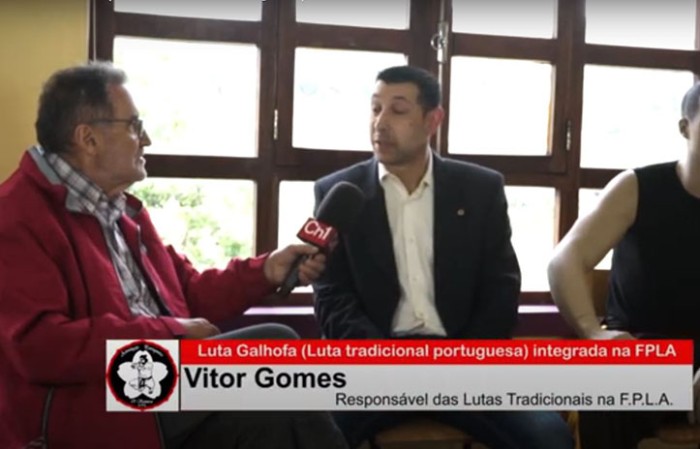
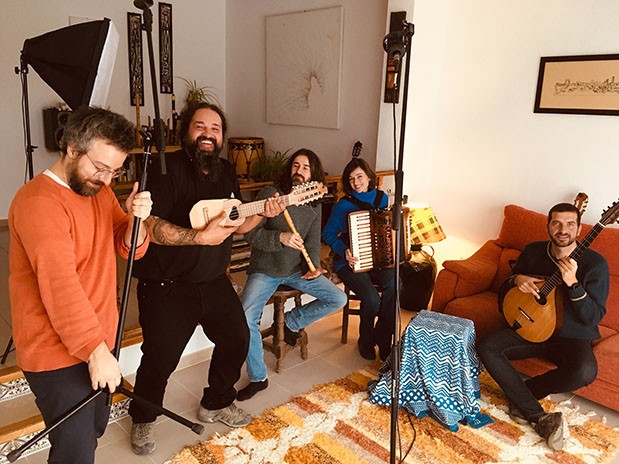

Educational
While the primary goal of the project is SCIENTIFIC-EDUCATIONAL—to document for posterity the ethnographic testimonies of traditional wrestling practices in the Iberian Peninsula (some of which are already extinct) [SDG 4: Quality Education]—we also aim to promote AGRORURAL DEVELOPMENT and CITIZEN PARTICIPATION in creating culture in depopulated areas of Spain and Portugal [SDG 8: Decent Work and Economic Growth].
Similarly, PROMOTING SPORT through these wrestling practices will serve as an incentive for a healthier population [SDG 3: Good Health and Well-being], spanning from childhood to adulthood, as these traditions have no age or gender restrictions. This is particularly significant for GIRLS AND WOMEN, as their participation and value in these folk wrestling traditions pave the way for greater inclusion in sports typically regarded as male-dominated [SDG 5: Gender Equality].
Finally, we believe this project can contribute to the INTEGRATION OF MIGRANT POPULATIONS, as similar wrestling traditions exist in many parts of the world—from the Far East to the Amazon in South America and sub-Saharan Africa. A similar phenomenon can already be seen with Canarian Wrestling (Lucha Canaria) [SDG 10: Reduced Inequalities].
Altruistic Contribution
We’ll thank you for life.
Important: Your contribution is tax-deductible by up to 80%! (Your actual cost will be €1). Find out more HERE.
> 00 Co-financiers
Public Thanks
Your collaboration will be publicly acknowledged on social media (if desired).
Important: Your contribution is tax-deductible by up to 80%! Find out more HERE.
> 02 Co-financiers
Premiere Ticket
This contribution grants you access to the premiere screenings of the documentary in select cities (TBD).
You can claim your ticket at one of the organized events by presenting the email confirmation.
(+ Public Thanks)
Important: Your contribution is tax-deductible by up to 80%! Find out more HERE.

> 03 Co-financiers
Landscape Calendar
An A4 landscape calendar featuring photos from our fieldwork.
(+ Public Thanks)
Important: Your contribution is tax-deductible by up to 80%! Find out more HERE.

> 03 Co-financiers
T-Shirt
Receive a fantastic T-shirt inspired by traditional wrestling. Designed by Italian artist Elena Zeziola. Choose your preferred model and collect it at one of our events, or we’ll ship it to you (shipping within mainland Spain, Canary Islands, and Balearic Islands included).
(+ Public Thanks)
Important: Your contribution is tax-deductible by up to 80%! Find out more HERE.

> 07 Co-financiers
Educational Booklet on Traditional Wrestling
A booklet featuring the traditions and history of traditional wrestling.
(+ Public Thanks)
Important: Your contribution is tax-deductible by up to 80%! Find out more HERE.

> 01 Co-financiers
Exclusive Viewing Link
Get a temporary link to watch the documentary before its official release.
(+ Public Thanks)
(+ A4 Landscape Calendar)
Important: Your contribution is tax-deductible by up to 80%! Find out more HERE.
> 03 Co-financiers
Masterclass on Traditional Wrestling
Participate in a masterclass on traditional wrestling taught by Vitor José Gomes, Martial Arts Master and Luta Galhofa expert. The class will take place at the Associação Portuguesa O Samurai in Chaves, Portugal, during the documentary’s promotional period.
(+ Educational Booklet)
Important: Your contribution is tax-deductible by up to 80%! (Your actual cost will be €20). Find out more HERE.

> 01 Co-financiers
Photo Book or *Luta Galhofa* Book
Choose between a high-quality photo book or the Luta Galhofa book.
(+ Exclusive Viewing Link)
Important: Your contribution is tax-deductible by up to 80%! (Your actual cost will be €30). Find out more HERE.

> 01 Co-financiers
Brand or Establishment Credit
Feature your brand or establishment in the documentary credits and related publications under the "Supported By" section.
(+ Public Thanks)
Important: Your contribution is tax-deductible by up to 80%! Find out more HERE.
> 00 Co-financiers
Documentary and Poster Acknowledgment
Have your name featured in the credits and on the documentary poster.
(+ A4 Landscape Calendar)
(+ T-Shirt)
(+ Educational Booklet)
(+ Exclusive Viewing Link)
Important: Your contribution is tax-deductible by up to 80%! (Your actual cost will be €127.50). Find out more HERE.
> 01 Co-financiers
Acknowledgment + Brand/Establishment Promotion
Your establishment or brand will be mentioned in every acceptance speech for awards received. A 30-second promo video for social media will also be created (if relevant).
(+ A4 Landscape Calendar)
(+ T-Shirt)
(+ Educational Booklet)
(+ Exclusive Viewing Link)
Important: Your contribution is tax-deductible by up to 80%! Find out more HERE.
> 00 Co-financiers
Documentary Patron
Be officially named as a patron of the documentary.
(+ A4 Landscape Calendar)
(+ T-Shirt)
(+ Educational Booklet)
(+ Exclusive Viewing Link)
(+ Photo Book)
Important: Your contribution is tax-deductible by up to 80%! Find out more HERE.
> 00 Co-financiers
Premium Patron or Product Placement
Be recognized as a premium patron of the documentary or include product placement.
(+ A4 Landscape Calendar)
(+ T-Shirt)
(+ Educational Booklet)
(+ Exclusive Viewing Link)
(+ Photo Book)
(+ Luta Galhofa Book)
Important: Your contribution is tax-deductible by up to 80%! Find out more HERE.
> 00 Co-financiers